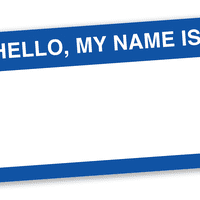
Apr 29, 2022
As a species, we’re obsessed with names. They’re one of the first labels we get as kids. We name and rename absolutely everything around us. And these names carry our histories, they can open and close our eyes to the world around us, and they drag the weight of expectation and even irony along with them. This week on Radiolab, we’ve got six stories all about names. Horse names, the names of diseases, names for the beginning, and names for the end. Listen to “Hello, My Name Is” on Radiolab, wherever you find podcasts.
Special thanks to Jim Wright, author of “The Real James Bond”, Tad Davis, Cole delCharco, Peter Frick-Wright, Alexa Rose Miller, Katherine De La Cruz, and Fahima Haque.
Members of The Lab, watch for an audio extra on your exclusive feeds, a poem written and read by Mary Szybist, whom Molly Webster interviewed for her story in this episode about endlings. It is titled “We Think We Do Not Have Medieval Eyes.” If you are not yet a member and would like to listen to it, you can join here.
Radiolab is on YouTube! Catch up with new episodes and hear classics from our archive. Plus, find other cool things we did in the past — like miniseries, music videos, short films and animations, behind-the-scenes features, Radiolab live shows, and more. Take a look, explore and subscribe!
DOWNLOAD BRAILLE READY FILE HERE (https://zpr.io/BmPeeLvvRDrD)
Citations:
The Emperor of All Maladies by Siddhartha Mukherjee
Warhorse: Cavalry in Ancient Warfare by Philip Sidnell
Check out ArtsPractica.com, a site focused on medical uncertainty. Alexa Rose Miller.